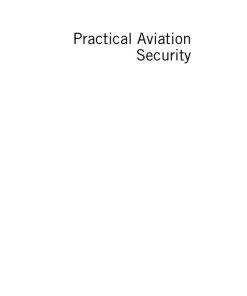(Ebook PDF) Majoring in Psychology 2nd edition by Jeffrey Helms, Daniel Rogers 1118851080 9781118851081 full chapters
$50.00 Original price was: $50.00.$25.00Current price is: $25.00.
Authors:Jeffrey L. Helms , Series:Psychology [250] , Author sort:Helms, Jeffrey L. , Languages:Languages:eng , Published:Published:Mar 2015 , Publisher:Wiley
Majoring in Psychology 2nd edition by Jeffrey, L. Helms, Daniel T. Rogers – Ebook PDF Instant Download/DeliveryISBN: 1118851080, 9781118851081
Full download Majoring in Psychology 2nd edition after payment.

Product details:
ISBN-10 : 1118851080
ISBN-13 : 9781118851081
Author : Jeffrey L. Helms, Daniel T. Rogers
Updated to reflect the latest research data in the field, as well as information on recent changes to the GRE, the second edition of Majoring in Psychology remains the most comprehensive and accessible text for psychology majors available today.
Majoring in Psychology 2nd Table of contents:
Part I Majoring in Psychology
Chapter One Why Major in Psychology?
Introduction
Valerie
Ajay
Katrina
How to Use this Book
Why Major in Psychology?
Majoring in Psychology for What Psychology Is
Popularity of the Degree
A Multipurpose Degree
Majoring in Psychology for Reasons Unrelated to Psychology
The “path of least resistance” reason.
The “one course and I was sold” reason.
The “I’m destined to be a helper” reason.
Determining if Psychology is for You
Suggested Exercises
Suggested Readings by Topic Area
Introduction to Psychology
Selecting a Major
References
Chapter Two Succeeding in College: Transitions, Strategies, and Resources
Introduction
The Experience of Adjusting to College
Box 2.1 Reflecting on the Transition to College
The Academic Work
Students’ Responsibility for their Learning
Structure of Courses
Interactions with Others
Thinking about One’s Transition Problems
Box 2.2 Examples of Common Academic Problems in Adjusting to College
Academic Strategies
Manage Time Wisely
Reading Course Material for Comprehension
Being Engaged in the Classroom
Box 2.3 Techniques for Boosting Reading Comprehension
Performing Well on Assignments
Box 2.4 Sample Test-Wise Strategies
Studying Effectively
Caring for Yourself
Campus Resources
Academic Advising
Writing Centers
Tutoring
Disability Support Services
Career Development Services
Physical and Mental Health
Conclusion
Suggested Exercises
Suggested Readings
References
Chapter Three Succeeding in the Psychology Major: Adjustments, Common Difficulties, and Strategies
Introduction
Box 3.1 Examples of Advice Shared Among Fellow Psychology Majors
The Nature of Academic Work in the Psychology Major
What is Psychology?
What Students Expect to Learn
The Nature of the Academic Work
Box 3.2 APA Guidelines for the Undergraduate Psychology Major
Common Challenges for Psychology Majors
Understanding the Scientific Basis of the Field
Learning Independently
Writing and APA Style
Box 3.3 Steps for Organizing Literature Review Papers
Conducting Literature Searches
Box 3.4 Helpful Databases for Literature Searches in Psychology
Strategies for Success
Planning Courses and Degree Progression
Planning Relevant Experiences
Box 3.5 Common Elements of Experience Outside the Classroom
Utilizing Available Resources
Conclusion
Suggested Exercises
Suggested Readings
Resources
References
Chapter Four Assessing and Developing Career Goals
Introduction
The Nature and Value of Career Goal Setting
Career Development Theories
Box 4.1 Social Cognitive Career Theory Model
Approaches to Career Goal Setting
Setting Career Goals as an Active Process
Table 4.1 Change in Percentage of Workforce Employed in Careers between 2003 and 2013
The Value of Career Goals
Assessing Self and Developing Life Goals
Box 4.2 Self-Assessment of Life Interests and Preferences
Box 4.3 Questions to Stimulate the Formation of Life Goals
Assessing Self and Developing Career Goals
Box 4.4 Self-Assessment of Career Related Abilities
Box 4.5 Questions to Stimulate the Formation of Career Goals
Assessing Self and Developing Educational Goals
Box 4.6 Self-Assessment of Academic Strengths and Weaknesses
Box 4.7 Questions to Stimulate the Formation of Educational Goals
Conclusion
Suggested Exercises
Suggested Readings
References
Chapter Five Using your Bachelor’s Degree: Preparing for the Job Market
Introduction
Work Settings of Recent Graduates
Box 5.1 A Sample of Various Entry-Level Positions Possible with a Bachelor’s Degree in Psychology
What Employers Want from Applicants for Entry-Level Positions
Box 5.2 Top 10 Attributes Employers Search for in an Applicant’s Résumé
Box 5.3 Job Skills that Employers Who Interview Psychology Majors Value
How to Develop What Employers Want
Communication Skills (Verbal and Written)
Teamwork and Leadership Skills (Ability to Work in a Team Structure)
Strong Work Ethic and Integrity
Initiative
Interpersonal Skills (Works Well with Others)
Analytical and Quantitative Skills
Finding Entry-Level Positions
Recruiting Methods
Resources
Box 5.4 Job Search Resources and Where to Find Job Openings
Preparing Job Application Materials: Résumés and Cover Letters
Résumés
Name and contact information.
Box 5.5 Example Functional Résumé
Box 5.6 Example Chronological Résumé
Profile or career objective.
Educational background.
Relevant experience.
Relevant skills.
References.
Additional headings.
Cover Letters
Box 5.7 Example Cover Letter
Keep Track of Where You Send Your Applications!
Preparing For and Completing Job Interviews and Considering Offers
Preparing for the Interview
Box 5.8 Practice Interview Questions
The Day of the Interview
Box 5.9 Possible Questions to Ask a Potential Employer
After the Interview
Box 5.10 Some Additional Interview Pointers
Considering Job Offers
Starting Salaries
Suggested Exercises
Resources
References
Chapter Six The Preprofessional Degree: Preparing for Graduate School
Introduction
Is Graduate School Right for You?
Box 6.1 Skills Developed and Improved During Graduate School
Course Selection
Box 6.2 Twenty Personal Qualities, Attitudes, and Behaviors Consistent with Graduate Training
Grades and Grade Point Average
Research Experience
Box 6.3 The Benefits of Research Experience
Internships, Field Practica, and Work Experience
Mentoring
Box 6.4 Characteristics and Components of an Effective Mentor
Interpersonal skills
Personal attributes
Professional competencies
Getting Involved in Professional Organizations
Getting Involved on Campus
Box 6.5 Professional Organizations
National organizations
Regional associations
APA divisions
Diversity-related organizations
State/territory/provincial psychological associations
International psychological associations
Community Service and Extracurricular Activities
Suggested Exercises
Box 6.6 Timeframe of Suggested Activities for Preparing for Graduate School
First year
Second year
Third year
Fourth year
Suggested Readings
Resources
References
Chapter Seven The Preprofessional Degree: Applying to Graduate School
Introduction
The Subfields of Psychology
Box 7.1 Timeline for Applying to Graduate School
Experimental Psychology
Developmental Psychology
Social Psychology
Cognitive Psychology
Physiological Psychology
Industrial and Organizational Psychology
Clinical Psychology
Counseling Psychology
School Psychology
Educational Psychology
Exercise and Sport Psychology
Health Psychology
Neuropsychology
Forensic Psychology
Deciding on the Type of Graduate Education
Graduate Certificates
Master’s Degrees
Box 7.2 Reasons to Pursue a Master’s Degree First
Specialist Degrees
Doctoral Degrees
Non-health service provider subfields of psychology.
Health service provider subfields of psychology.
Finding Available Graduate Programs
Evaluating the Graduate Programs You Find
Application and Acceptance Rates
Box 7.3 Potential Program Variables to Review
Grade Point Average (GPA)
Graduate Record Exam and the Psychology Subject Test
Stipends vs. Loans vs. Eventual Salary
Research
Grant Activity
Time to Complete Program
Attrition Rate
Teaching Experience
Placement of Students in Internships
Placement of Students after Graduation
Licensure of Students after Graduation
APA Accreditation
Geographical Location
Selecting Programs to Pursue
Preparing Vitae – An Essential Part of Your Application Packet
Box 7.4 Example Vita
Education
Publication
Conference Presentations
Other Research Experiences
Clinical Experience
Teaching Experience
Research Application and Writing Skills
Honors and Awards
University Involvement and Leadership Experience
Professional Affiliations
Coursework
Current Research and Interest Areas
Hobbies
References
Statements of Intent and Admissions Essays
Box 7.5 Four Kisses of Death for Your Personal Statement
Letters of Recommendation
Box 7.6 Materials Included in a Packet for the Faculty Providing You with Letters of Recommendation
The Graduate School Application Packet
Interviewing
Box 7.7 Checklist for Preparing the Application Packet for Submission – Making the Right Impression
Suggestions Specific to In-Person Interviews
Suggestions Specific to Telephone Interviews
Thank You Notes
Making Your Decision
Box 7.8 Potential Questions for Graduate School Interviews
Plan B: What if I Don’t Get In?
10 Tips from a Successful Applicant
Suggested Exercises
Suggested Readings
Resources
Program Rankings
Statement of Purpose Resources
Vita Preparation
General Resources
References
Part II The Subfields of Psychology
Chapter Eight Careers in Research: Experimental, Developmental, Social, Cognitive, and Biopsychology
Introduction
Defining the Subfields
Experimental Psychology
Box 8.1 Questions Addressed by the Research of Experimental Psychologists
Developmental Psychology
Box 8.2 Questions Addressed by the Research of Developmental Psychologists
Social Psychology
Box 8.3 Questions Addressed by the Research of Social Psychologists
Cognitive Psychology
Box 8.4 Questions Addressed by the Research of Cognitive Psychologists
Biopsychology
Box 8.5 Questions Addressed by the Research of Biopsychologists
The Work
Core Activities
Research.
Teaching and supervision.
Administration.
Settings
Salaries
Employment Issues
Training and Preparation
Earning a Degree
Doctoral programs.
Master’s programs.
Postdoctoral training.
Preparing for Graduate Training as an Undergraduate
Coursework.
Activities.
Working in Research-Related Areas with a Bachelor’s Degree
Research Assistant or Lab Technician
Data Entry and Analysis
Advertising and Sales
Teacher
An Insider’s Perspective
Testing the Waters
Getting your Feet Wet: Reading Research
Diving In: Doing Research
Professional Spotlight
Suggested Exercises
Suggested Readings by Topic Area
Experimental Psychology
Developmental Psychology
Social Psychology
Cognitive Psychology
Biopsychology
Resources by Topic Area
Experimental Psychology
Developmental Psychology
Social Psychology
Cognitive Psychology
Biopsychology
References
Chapter Nine Careers in Industrial and Organizational Psychology
Introduction
Box 9.1 Common Topics Addressed by I/O Psychologists
Defining the Subfield
Industrial Psychology
Selection and placement.
Performance evaluation and appraisal.
Training and education.
Organizational Psychology
Organizational structure.
Leadership.
Environment.
Job satisfaction and commitment.
Organizational change and development.
Legal and Policy Issues
The Work
Core Activities
Consultation.
Box 9.2 Recent Openings in the I/O Psychology Subfield
Administration.
Research.
Box 9.3 Journals that Publish I/O Psychology Research
Settings
Salaries
Employment Issues
Training and Preparation
Degree Options and Licensure
Table 9.1 Summary of Guidelines for Doctoral and Master’s Programs in I/O Psychology
Variations in Graduate Programs
Box 9.4 Common Titles of Graduate Programs in I/O Related Areas
Earning the Degree
Preparing for Graduate Training as an Undergraduate
Coursework.
Box 9.5 Recommended Undergraduate Coursework for I/O Psychology
Activities.
Working in Areas Related to I/O Psychology with a Bachelor’s Degree
Management
Human Resources
An Insider’s Perspective
The Flexibility of the Doctoral Degree in I/O Psychology.
Professional Spotlight
Suggested Exercises
Suggested Readings
Resources
References
Chapter Ten Careers in Clinical Psychology and Counseling Psychology
Introduction
Defining the Subfields
The Work
Core Activities
Practice.
Table 10.1 General Comparisons between Psychotherapy and Counseling
Research.
Box 10.1 Journals that Publish Clinical and Counseling Psychology Research
Administration.
Teaching and supervision.
Theoretical Orientation
Settings
Private practices and outpatient clinics.
Academic.
Hospitals and inpatient clinics.
Government and business.
Salaries
Employment Issues
Box 10.2 Recent Openings in the Clinical and Counseling Psychology Subfields
Related Careers
Psychiatrists.
Clinical social workers.
Counselors and therapists.
Training and Preparation
Earning the Degree
Doctoral degree options.
Master’s degrees.
Predoctoral internship.
Variations in Graduate Programs
Table 10.2 Differences in Graduate Programs in Clinical and Counseling Psychology
Licensure
Preparing for Graduate Training as an Undergraduate
Coursework.
Box 10.3 Recommended Undergraduate Coursework for Clinical and Counseling Psychology
Activities.
Working in Areas Related to Clinical or Counseling Psychology with a Bachelor’s Degree
Mental Health Technician/Aide
Human/Social Service Specialists
An Insider’s Perspective
A Science of Heart and Mind.
Professional Spotlight
Suggested Exercises
Suggested Readings by Topic Area
Clinical Psychology and Counseling Psychology Careers
Graduate School in Clinical and Counseling Psychology
Mental Health Care Issues
Resources
References
Chapter Eleven Careers in Educational and School Psychology
Introduction
Defining the Subfields
Educational Psychology
School Psychology
The Work
Core Activities
Research.
Assessment and interventions.
Box 11.1 Recent Openings in the Educational and School Psychology Subfields
Box 11.2 Journals that Publish Educational and School Psychology Research
Program evaluation.
Consultation.
Settings
Salaries
Table 11.1 Employment Settings for Educational and School Psychologists
Employment Issues
Training and Preparation
Degree Options, Certification, and Licensure
Variations in Graduate Programs
Earning the Degree
Preparing for Graduate Training as an Undergraduate
Coursework.
Activities.
Box 11.3 Recommended Undergraduate Coursework for Educational and School Psychology
Working in Areas Related to Educational and School Psychology with a Bachelor’s Degree
Human/Social Service Specialists
Teachers
An Insider’s Perspective
The Science of People: A Career in School Psychology.
Professional Spotlight
Suggested Exercises
Suggested Readings by Topic Area
School Psychology
Educational Psychology
Resources
References
Chapter Twelve Careers in Exercise and Sport Psychology
Exercise and Sport Psychology Defined
The Work
Core Activities
Research.
Box 12.1 Journals that Publish Exercise and Sport Psychology Research
Practice.
Teaching and training.
Employment Settings and Salary Expectations
Training and Preparation
Earning a Degree
Licensure Issues
Training Programs
Preparing for your Graduate Training
Working in Areas Related to Exercise and Sport Psychology with a Bachelor’s Degree
An Insider’s Perspective
A Counseling Sport Psychologist’s Journey: Reflections and Observations
Professional Spotlight
Suggested Exercises
Suggested Readings
Resources
Other Web Resources
References
Chapter Thirteen Careers in Health Psychology
Health Psychology Defined
The Work
Core Activities
Research.
Box 13.1 Journals that Publish Health Psychology Research
Practice: Applying the research findings.
Teaching and training.
Focusing on the Future
Employment Settings and Salary Expectations
Box 13.2 Recent Openings in the Health Psychology Subfield
Training and Preparation
Earning a Degree
Licensure Issues
Training Programs
Preparing for Your Graduate Training
Working in Areas Related to Health Psychology with a Bachelor’s Degree
An Insider’s Perspective
Professional Spotlight
Suggested Exercises
Suggested Readings
Resources
Other Internet Resources:
References
Chapter Fourteen Careers in Neuropsychology
Neuropsychology Defined
The Work
Core Activities
Research.
Box 14.1 Journals that Publish Neuropsychological Research
Practice.
Teaching and training.
Employment Settings
Salaries
Training and Preparation
Earning a Degree
Licensure Issues
Training Programs
Preparing for Graduate Training
Working in Areas Related to Neuropsychology with a Bachelor’s Degree
Social Science Research Assistants
Occupational Therapist Aides
Rehabilitation Counselors
Health Educators
An Insider’s Perspective
Clinical Neuropsychology – Expanding our Borders.
Professional Spotlight
Suggested Exercises
Suggested Readings
Resources
Neuropsychology and Related Organizations
Other Neuropsychology Resources on the Web
References
Chapter Fifteen Careers in Forensic Psychology
Forensic Psychology Defined
Contributions to the Discipline of Psychology
Box 15.1 Top Journals That Publish Forensic Psychology Research
Core Activities of the Forensic Psychologist
Assessment
Treatment
Consultation with Attorneys, Courts, and Insurance Companies
Trial Consultation
Testimony
Program Development and Administration
A Note about Criminal Profiling
Training Required to be a Forensic Psychologist
Forensic Psychology Training Programs
Box 15.2 Top Programs in Forensic Psychology
Preparing for Graduate Training in Forensic Psychology
Table 15.1 Activities Rating Means and Percentages for People Involved in Forensic Psychology Graduate Student Selection
Employment in the Forensic Psychology Subfield
Settings
Box 15.3 Recent Forensic Psychology Position Openings
Salaries
Special Employment Issues
Working in Areas Related to Forensic Psychology with a Bachelor’s Degree
Police or Law Enforcement Officer
Correctional Officers
Probation Officers and Correctional Treatment Specialists
Other Positions
An Insider’s Perpective
Why Become a Forensic Psychologist?
Professional Spotlight
Suggested Exercises
Suggested Readings
Case Examples in Forensic Psychology
General Forensic Psychology
Resources
References
Chapter Sixteen Careers in Academe
Academe Defined
Employment Settings
Types of Settings
Setting Matters
Professorial Activities
Teaching, Supervision, and Mentoring
Box 16.1 Top Tasks Associated with Being a Psychology Professor
Research
Professional Service
Relative Emphasis
Working Conditions
Box 16.2 Top 10 Physical and Social Factors that Influence the Nature of the Work for Psychology Professors
Academic Freedom
Facilities and Support
Work Schedule
Educational Degree and Training Needed
Rank
Part-time/Adjunct Faculty
Visiting Faculty
Research and Clinical Faculty
Full-time Faculty
Salaries
Table 16.1 Mean Salaries of Assistant Professors Based on Setting
Finding Employment
Box 16.3 Websites that Post Academic Position Openings in Psychology
You Don’t Just Get to Stay!
Working in the Teaching Area with a Bachelor’s Degree
An Insider’s Perspective
Professional Spotlight
Suggested Exercises
Suggested Readings
Resources
References
Chapter Seventeen Assessing the Career Outlook for the Psychology Major
Introduction
Psychology’s Strengths
Psychology’s Weaknesses
Psychology’s Threats
Psychology’s Opportunities
Conclusion
References
Back Matter
People also search for Majoring in Psychology 2nd:
is majoring in psychology worth it
bachelor of arts majoring in psychology
bachelor of science majoring in psychology
what does majoring in psychology mean
best colleges for majoring in psychology












